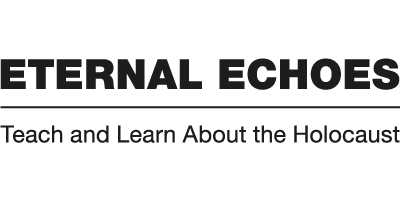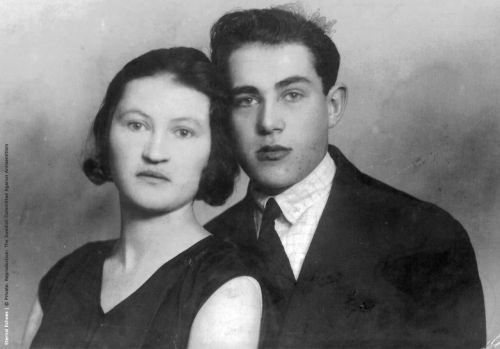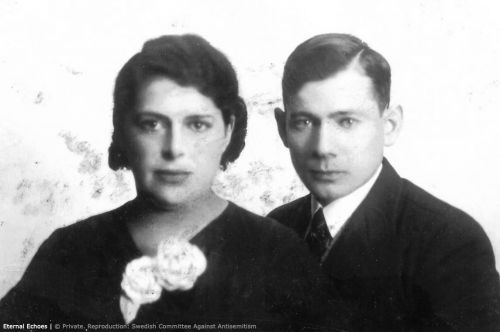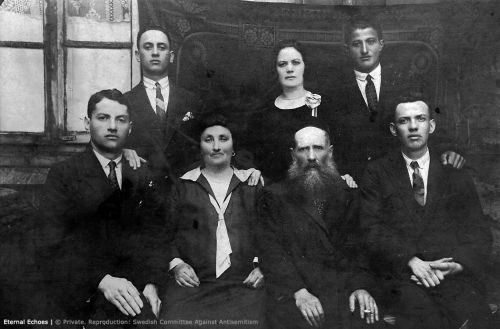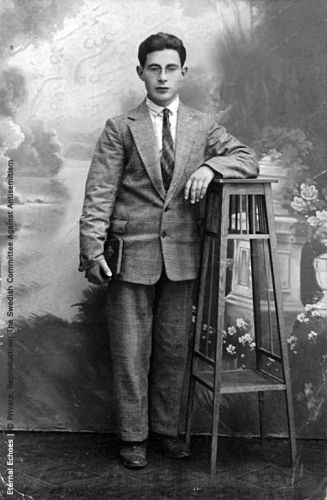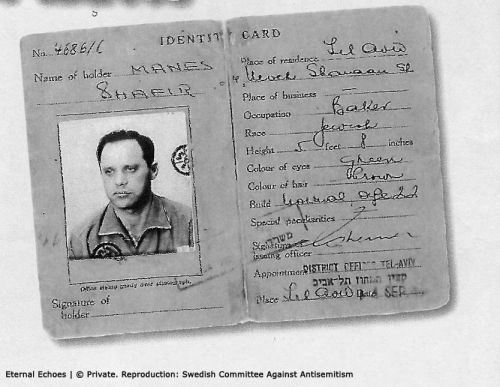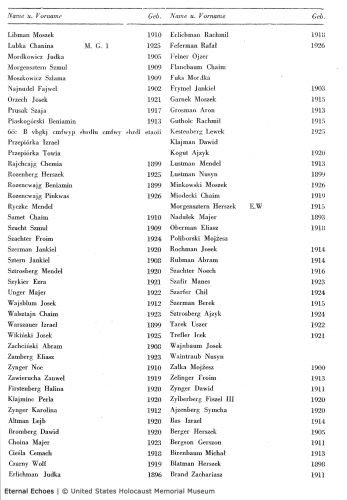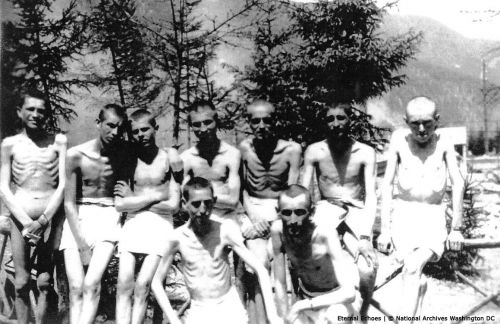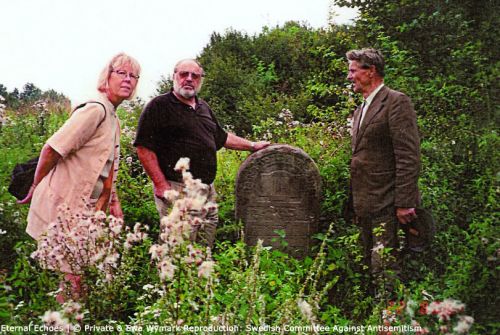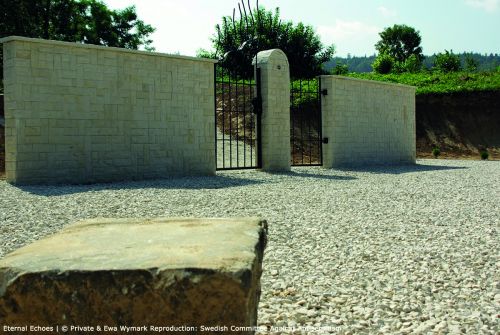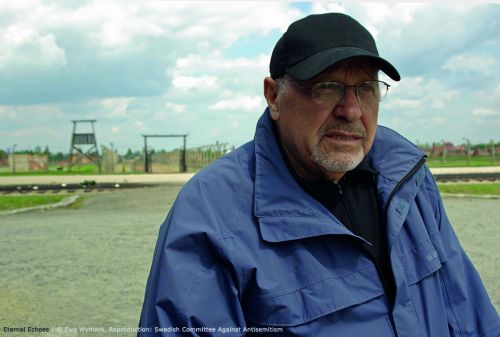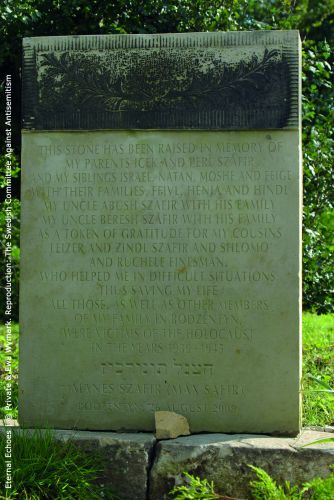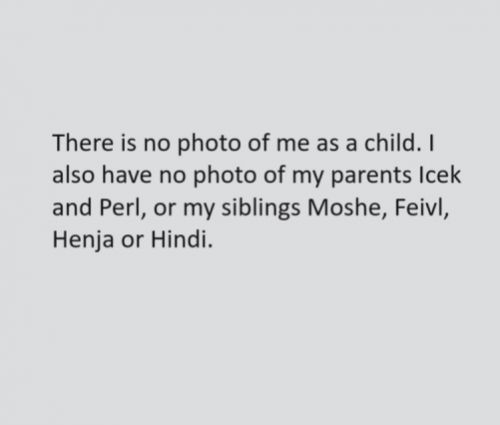This is a photo of my brother Natan and his cousin Shirley (Sara) Ejnesman, who emigrated to Canada before the war.
My Childhood 1925–1938 | Life Changes 1938-1940 | Confined to the Ghetto 1941-1942 | Time in the Camps 1942-1945 | Liberation and Postwar Experiences 1945 | (Complete Biography)
Max Safir | Photos and Documents
My sister Feige and her husband Jona.
This is a photo of my uncle Beresh and his family in Bodzentyn. Three of my cousins emigrated to the British Mandate of Palestine in the 1930ies.
My oldest brother Israel, who was married to a woman called Sara. They lived in Skarzysko- Kamienna, a town close to Kielce.
My first ID-card 1947 in the British Mandate of Palestine.
My name, Menes Szafir, is on a preserved list of workers from the Starachowice-Wierbnik labour camp. For some reason it says that I am born 1923.
In this photo I am standing to the far left. The photo is taken a short time after the camp Ebensee was liberated.
On the initiative of Max, a restoration of the Jewish cemetery in Bodzentyn, where Max was born, was carried out in 2009.
A memorial at the Jewish cemetery in Bodzentyn in honour of the victims of the Holocaust. The monument was erected in connection with the restoration that was carried out in 2009 on the initiative of Max.
In this photo you can see me with the former concentration and extermination camp Auschwitz-Birkenau in the background. The photo was taken during a trip in 2008.
2010 the Catholic priest in the village, father Leszek Sikorski, helped to erect a memorial stone in memory of the family of Max and the people who went out of their way to help Max in difficult circumstances during the Holocaust
 Choose Language
Choose Language  svenska
svenska  română
română  polski
polski  Lithuanian
Lithuanian  Deutsch
Deutsch  magyar
magyar 
